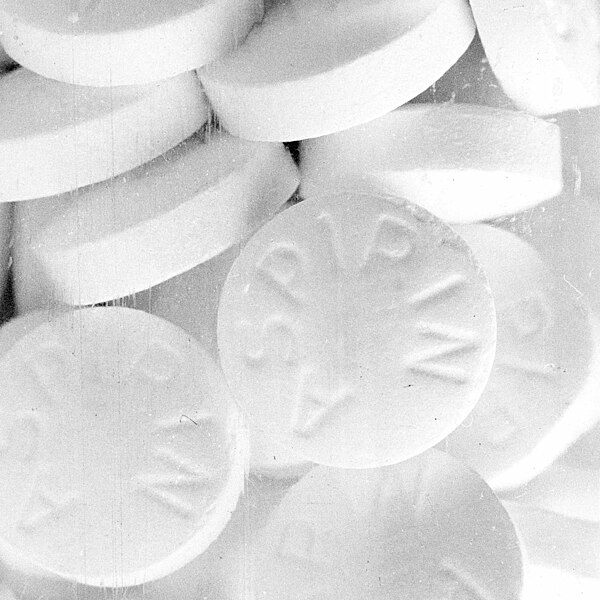A placebo can be roughly defined as a sham medical treatment. Common placebos include inert tablets, inert injections, sham surgery, and other procedures.
Placebos are typically inert tablets, such as sugar pills.
The subjective effects of placebos may be related to expectations, yet similar effects have been noted in open-label studies.
A quack treating a patient with Perkins Patent Tractors by James Gillray, 1801. John Haygarth used this remedy to illustrate the power of the placebo effect.
A drug is any chemical substance that when consumed causes a change in an organism's physiology, including its psychology, if applicable. Drugs are typically distinguished from food and other substances that provide nutritional support. Consumption of drugs can be via inhalation, injection, smoking, ingestion, absorption via a patch on the skin, suppository, or dissolution under the tongue.
Uncoated aspirin tablets, consisting of about 90% acetylsalicylic acid, along with a minor amount of inert fillers and binders. Aspirin is a pharmaceutical drug often used to treat pain, fever, and inflammation.
Nexium (Esomeprazole) is a proton-pump inhibitor. It is used to reduce the production of stomach acid.
An Amazonian shaman
San Pedro, a psychoactive cactus







